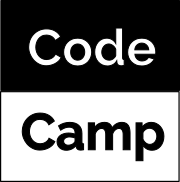Daniel Huang
This is a question that I’ve been getting a lot from parents, students, and my peers. Some people think I’m doing this for profit, some think I’m doing this for fun, some just really don’t care and think it’s cool that I’m doing this in the first place.Well for me, the real motivation behind Code Camp is more complex than any single reason, but ultimately it stems from one simple goal of mine: to inspire this generation of students to think beyond what is presented to them. To know how I came to this goal, I’d really need to go back to when I was in high school and -to be honest- wasn’t a great student.
Before the Camp
I went to a very competitive high school and I got all of the good and bad experiences that comes with such an intense environment. But even before high school, I was constantly told that there was only a single pathway to success: get good grades, get good test scores, do amazing extracurriculars, all to get into a good college which will in turn get you a good job, and once you’ve got a good job, congratulations, you’ve achieved success. For the longest time, this was all my friends and I knew, as it was drilled into us by our Asian American parents and reinforced further by the pressure that we placed on ourselves.
When I entered high school, I was already so convinced that this was the only way to do well in life that I set out to be the perfect person that I could never be. Whenever there was an available AP class- I took it. Whenever there was a new club I could join- I participated in it. Whenever there was an opportunity to do track- I did it. Whenever there was an opportunity to showcase my musical abilities- I took it. I thought that by merely seizing all of these opportunities, my future college application would look amazing, but in the end it came out to be only slightly above mediocre (at least in my opinion). I became a jack of all trades but a master of none. Despite my mediocrity in everything, I was still blessed to be accepted into a fairly prestigious college.
To this day, I don’t regret anything that I did in high school, even if it meant I was going to be only mediocre in everything that I did. Although, what did being a jack of all trades but a master of none teach me? Well it gave me a unique perspective on how our education system is flawed. While I do acknowledge that going through our education system has made me the person I am -and I will always be grateful for that-, being a musician, athlete, leader, teacher, and student all at the same time made me realize a couple of things: 1) school wasn’t teaching us, it was only telling us, 2) creativity is killed in school, and 3) people were afraid of defying their preconceived notion of success. These observations/realizations made me realized how I have personally been affected by these things and ultimately motivated me to want to correct these flaws. Hence, I started Code Camp.
Education 3.0- Code Camp
One of the observations made in Manifesto 15 is that 1.0 schools are teaching 3.0 kids. What does this mean? Our education system stems from the 18th century that aimed to “create loyal, productive factory workers and bureaucrats” (Manifesto 15). As a current participant of our education system, I can say that as students we’re being told what we should know but never to question what is possible know. Furthermore, I often see that when teachers ask students questions, only the correct responses are rewarded. From my personal experiences, this intimidates kids and creates a fear of being incorrect and failing. Thus I wanted to make Code Camp a place where students aren’t afraid of failing and inspires them to take risks and be creative.
My Motivation
With programs such as Siri, Cortana, and Watson, machines-learning already exist today, so what is going to make us (humans) different? I firmly believe that it is creativity derived from human intuition. What might this be? Well, I say this specifically because, programs today can actually come up with creative solutions to problems that result as a product of machine learning, but programs -no matter how advanced- cannot have creativity that is the result of our intuition of culture, human nature, and history.
With that said, I don’t want to see a role reversal between humans and machines: from programmers to the programmed. While schools do a great job of imparting information on us, I see schools lacking in cultivating this kind of creativity so this is what I want to inspire in Code Camp. I want to show students that taking a million AP courses won’t make them a better student. I want to shatter what they think is commonly accepted as the only pathway to success. I want students to explore beyond what is shown to them in school. Thus, inspiring and contributing to the next generation of human programmers to think beyond what is presented to them is my greatest motivation for starting Code Camp.
